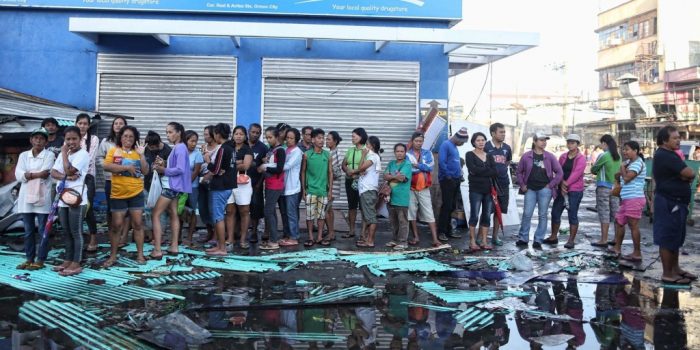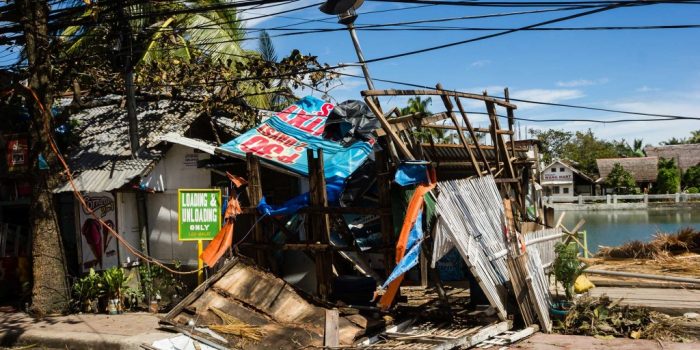Typhoon Haiyan Puts Focus on Farm Bill
This past summer, the House of Representatives rejected an amendment to the Farm Bill seeking to reform legislation central to food aid. While the Senate approved a different version of the bill in June, Typhoon Haiyan has thrust the issue of how the United States delivers vital assistance back into the national spotlight and highlighted […]
This past summer, the House of Representatives rejected an amendment to the Farm Bill seeking to reform legislation central to food aid. While the Senate approved a different version of the bill in June, Typhoon Haiyan has thrust the issue of how the United States delivers vital assistance back into the national spotlight and highlighted the contentious debate supposedly taking place in the House.
The outdated and inefficient piece of legislation requires that all food aid by purchased from US farmers and shipped by US carriers. The United States remains the only major donor that continues to send food to countries in crisis, rather than buying locally.
Over the years, foreign aid has traditionally maintained very few political constituents. Those that did lobby tended to be few but powerful. The agricultural and shipping industries provided key financial support in favor of larger foreign assistance budgets. Now, though, these same supporters present the largest obstacles for food aid reform.
While current provisions allow for some small spending on local purchases, the crises in Syria and the DRC receive the vast majority of this allocation. The Obama administration has suggested establishing a threshold of 45% of food aid spending to be eligible for “buying local,” but such reform has been met with stiff opposition.
The most obvious downside of the current system is the amount of time it takes for food to reach vulnerable populations. But the large influx of food also impacts local economies. The increased supply causes food prices to plummet, hurting local farmers and jeopardizing long-term macroeconomic stability. U.S. assistance after the 2010 Haitian earthquake undermined thousands of local farmers.
In an effort to bolster a few large U.S. farms through subsidies and surplus purchases, Congress favors domestic political interests at the cost of the humanitarian imperative.
Not surprising, but reforming the inefficient system could save taxpayers more than $200 million a year.
Faster delivery to more beneficiaries means more lives are saved.
What does this mean for Haiyan? The food initially travels over 11,000 nautical miles before reaching the Philippines, a country with thousands of islands, further complicating relief efforts. At best, food assistance authorized immediately after Haiyan struck will not reach the Philippines for another three weeks, almost three months after the typhoon made landfall.
The current Farm Bill debate in Congress is complicated. The response and ultimate recovery in the aftermath of Haiyan is complicated. Food aid reform is less so. It is a relatively easy decision that brings about immediate and measurable results. For those Filipinos in need, reform provides assistance in the short term while setting a foundation of sustainable, longer-term development. For those U.S. taxpayers also concerned about helping others in post-recession budget, reform saves money and lives. Economic and humanitarian interests don’t have to be mutually exclusive.
More like this

Haiyan Recovery Still Has Long Road Ahead
